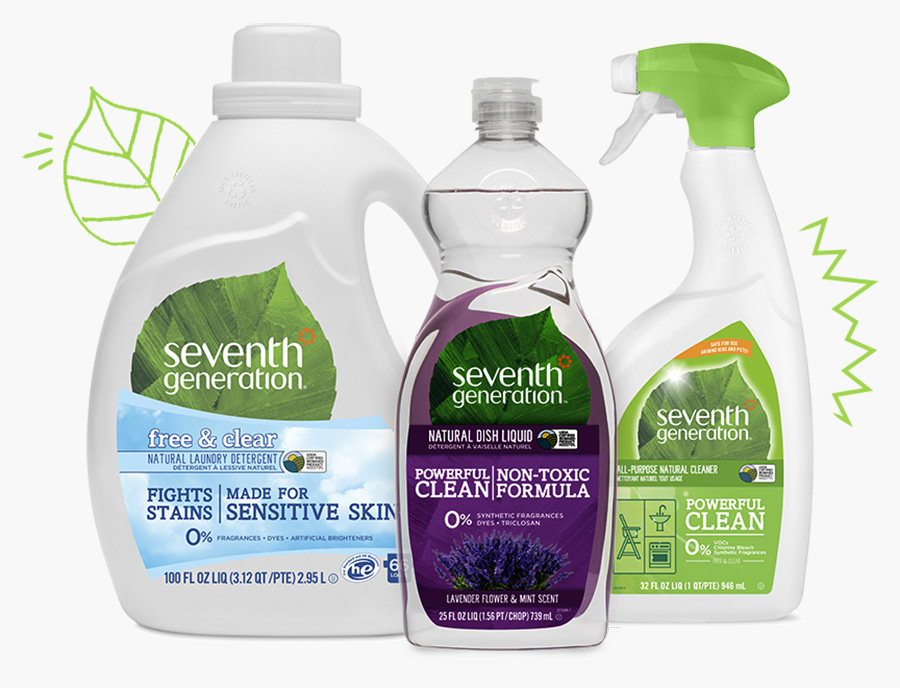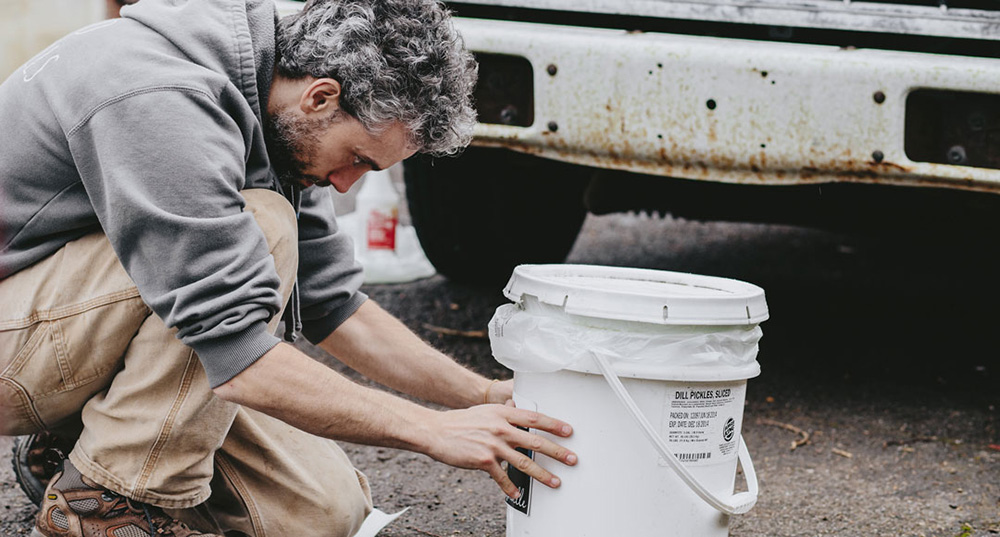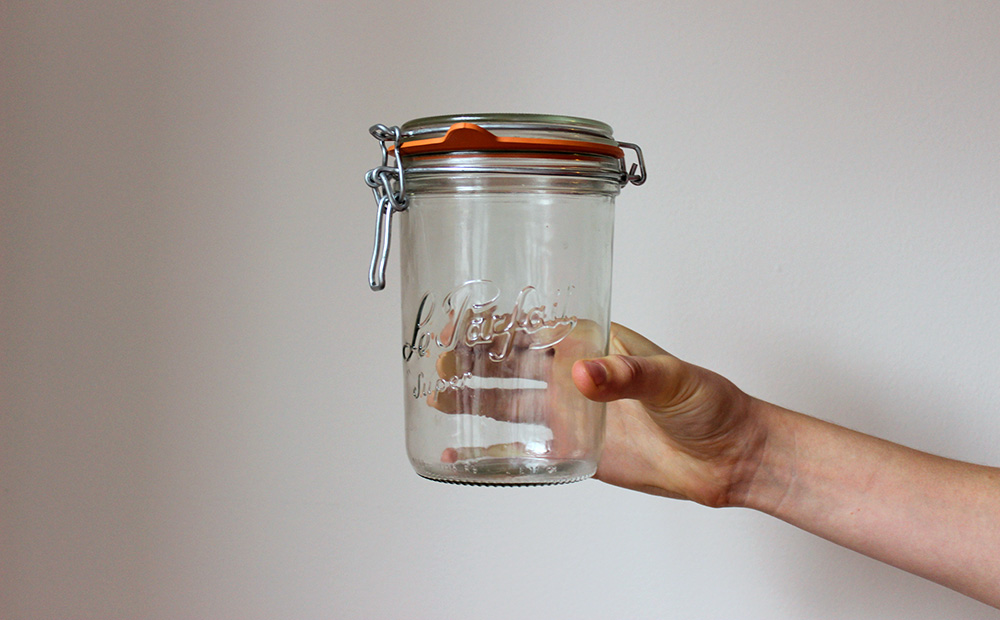
Our era is characterized by an extreme focus on user-ease. We have grown up in a world that has marginalized the value of quality, made-to-last, reusable pieces and has opted into a culture that favors continually buying substandard, cheap, disposable items. In America, industry, advertising, and capitalism have collectively swindled us into believing that quantity means quality and we have fallen into the mindset that we always need more. Since a vast amount of people are restricted to tight budgets, it is logical that the masses are drawn to the low prices of disposable items. For others, it is always the question of why pay more if you can pay less? Right?
But pricing is not the only incentive to buying environmentally toxic items. In an increasingly competitive world where we are constantly distracted and worn out by social media and technology, there is an obvious attractiveness to buying materials created specifically as a method of reducing human energy expenditure. We have been convinced that we simply do not have the time for the upkeep required by having reusable items and we may as well preserve our few ounces of energy for the important thing: making money.
It admittedly makes sense why so many people opt into conducting lives that produce immense amounts of waste, but, we have come to an age where we need to seriously start thinking about how these ease-of-use decisions are effecting our world. We need to selflessly stop being cheap and lazy and start incorporating environmentally sustainable practices into our everyday lives. Essentially, we need to take accountability for how we individually treat our world. That being said, as a business owner or even employee, there are plenty of steps that you can take to reduce your energy use and waste production.
For Businesses:
Many companies have taken steps towards reducing their environmental footprint. When written out, these steps seem fairly simple, but they do require diligence and consistency.

1. Energy Use
Using lighting that utilizes less electricity is one of the simpler, mindless ways to reduce energy use. Opt in on CFL or LED bulbs. While the initial cost of these bulbs may be higher, the reduced amount of electricity that they use to produce light will actually save you money in the long run. Further, turning lights off in areas of the office that are not in use, ESPECIALLY overnight, is a key method of reducing energy use. Next, while air conditioning and heating are often a necessity not only for comfort but also for employee productivity, there is no need to make your office extremely cold or hot to compensate for the weather. Instead, opt for a temperature that ranges between 68-76 but that fluctuates with the weather outside. If you are truly committed to saving energy, which you should be, even turn off your heating and cooling units overnight when no one is in the office.
2. Little or No Paper
A lot of offices have naturally become relatively paper-free hubs. But that does not mean that you should stop thinking about the ways in which you can avoid using paper for the most part within your work. That being said, if you do need to print out some material go ahead and buy recycled paper and make sure you have a recycling bin to place it in when you are done.
3. Waste Reduction
Whether you are hosting office parties or just providing everyday materials for your employees use, consider your environmental impact before opting into the disposable cups, plates, napkins, utensils, etc. At the very least, you should be choosing to providing reusable cups and mugs and maybe a few plates for the everyday stuff. It may seem like a hassle or a waste of money but over time, the price of those singular mugs will be approximately equal to if not less than the cost of buying disposable styrofoam cups weekly. You get the point.

4. Clean Cleaning Products
A lot of people do not consider the chemicals in their cleaning products as invariable factors in causing pollution. Do a little research if you need convincing, but I am going to just go ahead and tell you that many of the generic brands of cleaning products have chemicals that are not only toxic to our world but to people as well. Consider opting for “clean” products like Seventh Generation. I know, the price is higher, but there is a price to be paid for counteracting a world driven into chemical reliance.
5. Travel and Commuting
A lot of businesses now have networks and methods of communicating that do not necessitate the physical presence of many employees. As a business owner, consider letting your employees work remotely if they can, this will eliminate the energy waste they would have produced coming into the office that day.
6. Recycle
This seems to be the longest running method of reducing environmental impact. There is an idea that if you are recycling your decision to purchase that pile of plastic cups in the first place is justified. Well, I kind of agree. If you must opt into the disposable ware then you may as well do your duty and go ahead and have the materials necessary to recycle those disposables. Since I am writing from Nashville, Tennessee I am aware that recycling methods are in fact overly complicated and therefore discouraging. But here is a quick break down:
YES: Paper and broken down paper cartons. All plastic bottles and containers. All aluminum and metal cans / containers. All of the above must be cleaned a.k.a. no excessive food waste on them.
NO: Glass containers. Soiled food containers (i.e. Pizza boxes). Plastic toys or plastic bags. Styrofoam.
For Individuals
This section is less step by step. Go back and read all of the methods of reducing energy use and waste production within a business and then apply all of those methods to your home life. There are other choices that you can make as an individual as well. Here are just a few, I am sure plenty is missing but this will give you a good start.
Look at where your products, clothing, etc. are coming from. Look for things Made in the U.S.A. these products have innately used less waste because they have not travelled from other countries just to make it into your closet, cabinet, etc.
Compost. For those of you in Nashville there is a handy service called Compost Nashville that will provide you with a nice compost bucket and then pick up your decomposing trash when it is ready. (https://compostnashville.org)

Buy bulk items with reusable containers. You know those oblong vertical contraptions in the grocery store that usually have things like nuts and other dry goodies. Yes, those. Use them. With reusable containers. Voilà, you just saved a plastic bag, or two, or more.
Bring your own bags shopping. I, myself, am one of the many who frequently forget to bring a reusable bag to the store. When I buy only a few items you can find me insisting that I can carry them all by hand and you may catch me in a mildly dysfunctional state dropping things as I walk from the store door to my car. So, do not be me, save yourself, and the world, some grief and maybe just leave a few reusable bags in your car. The ones that fold up super duper small are nice if you do not want to have to look at them taking up space all of the time. (https://baggu.com)

Use reusable tableware and containers for food to go. It’s simple. It’s easy. It’s self-explanatory. Just do it. I promise that the initial cost of buying these containers will pay off in a few months but probably less. Items like Mason Jars can be found for pretty cheap and Amazon has plenty of budget friendly options.
Grocery shop only for what you KNOW you will eat. We all go to the grocery store hungry, and we all come out with too many items at times. But it will save you money and save the world waste if you just reduce how much you buy and shop more often. Or, at least, do not bulk buy those perishable items you know you will not finish in time. I find that having a meal plan set out in some form before you get to the store is effective and beneficial in sticking to a limited list of foods.

Take shorter showers. Is there really a reason that you need to be in the shower for 40 minutes? Nope. You are simply being selfish. And while occasional indulgence can pass, just you remember that in South Africa water taps to business and homes are about to be shut off because of a lack of water supply and here you are on the other side of the planet still taking your unlimited water access for granted. (Read: https://news.nationalgeographic.com/2018/02/cape-town-running-out-of-water-drought-taps-shutoff-other-cities/)
Donate, don’t throw away. First of all, there are people more unfortunate then yourself so go ahead and donate those clothes that are no longer up to your standards. Someone out there will appreciate it and the clothing industry produces enough waste without your contribution.
Have plants in and / or around your home. They will clean your air for you. They’re like, an easier-to-care-for pet that gives back to your physical health in exchange for a little water and sunshine daily.
Basically, there are endless ways that you can reduce your impact on our little world. My suggestion is to start regularly forcing yourself to think about the environment and your impact. Soon enough, your consciousness will be engrained with sustainable practices and you will not even remember the days when you had to consciously make changes.
Sources that supported this article:
https://www.scientificamerican.com/article/three-ways-to-green-up-yo/
https://www.inc.com/marla-tabaka/8-ways-green-your-company.html
https://www.huffingtonpost.com/entry/how-to-recycle-basics_us_578d7e8ce4b0c53d5cfab03d
https://www.energy.gov/energysaver/save-electricity-and-fuel/lighting-choices-save-you-money


